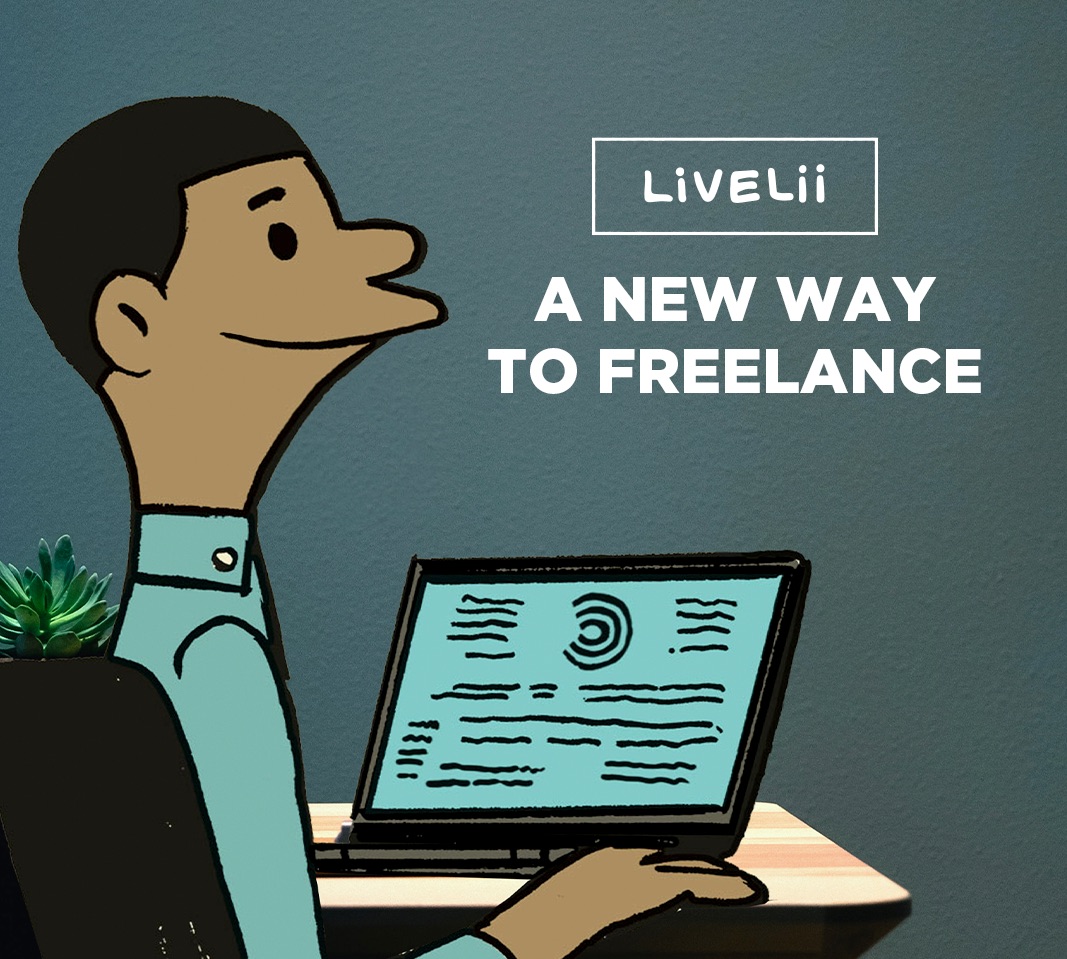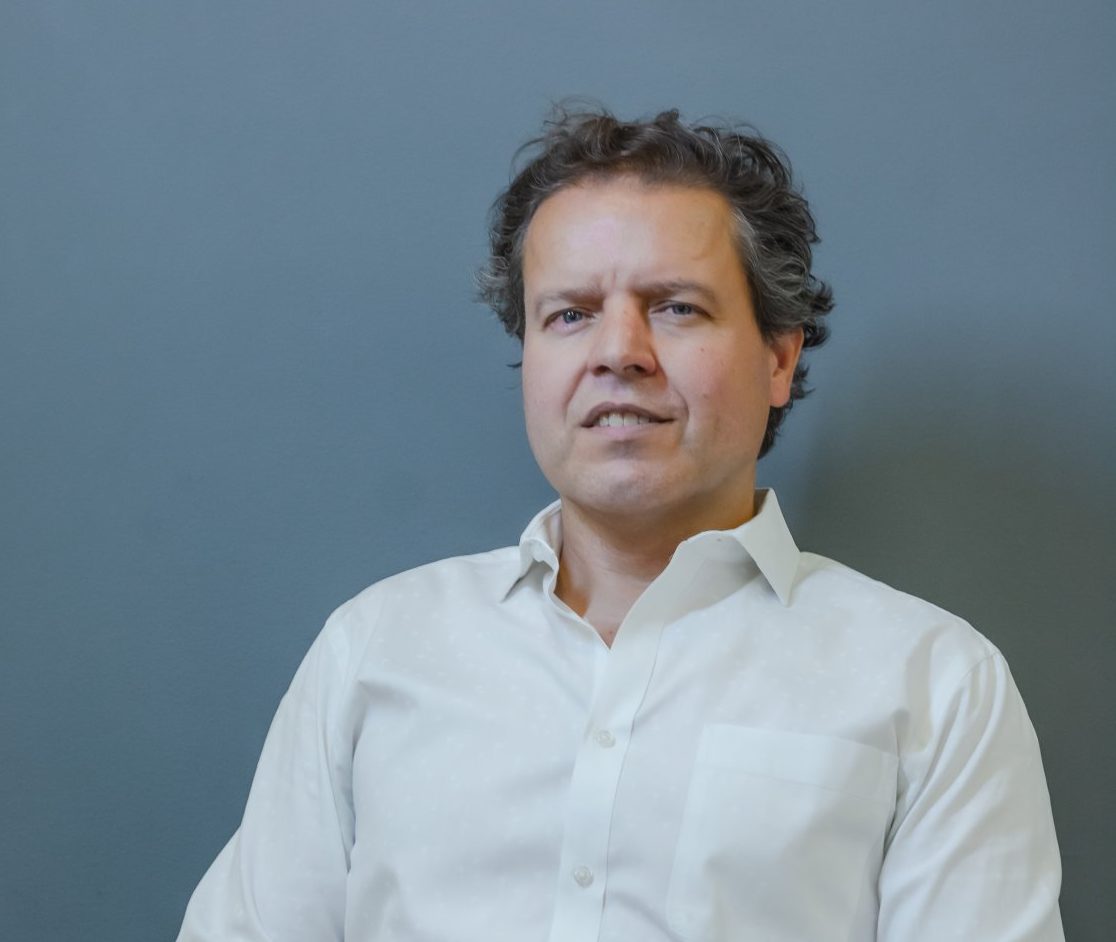[vc_row][vc_column][vc_column_text]Freelancing can be much more than a side gig. For some, it’s a full time career—it’s time that it gets treated as such.
Enter Livelii. The platform helps freelancers build towards individual benefits and brings freelancing into the 21st century. Through helping freelancers include forethoughts like group benefits, paid sick days and processing fees into their hourly rate, Livelii is giving freelancers a sense of stability that was previously missing.
Over 10 years ago, Livelii’s co-founders, Anya Switzer and Adam Roach, were working on Bay Street. They would meet up every Friday for lunch and brainstorm business ideas. Eventually, Switzer and Roach left their jobs, and all of that brainstorming turned into an advertising agency called Co-op Advertising.
The joint venture of Co-op Advertising saw Switzer and Roach work exclusively with freelancers to satisfy client needs. It was during this time that they realized how overlooked this group of people were.[/vc_column_text][/vc_column][/vc_row][vc_row][vc_column width=”1/2″][vc_single_image image=”19542″ img_size=”full” add_caption=”yes”][/vc_column][vc_column width=”1/2″][vc_single_image image=”19541″ img_size=”full”][/vc_column][/vc_row][vc_row][vc_column][vc_column_text]“We realized that these guys are so talented and there’s so much expertise out there that we built an entire business around this [freelancing],” said Switzer. “And working with these guys, you know, they are a wonderful group of people that are never, ever celebrated.”
After many years of employing freelancers, Switzer and Roach decided to dive deeper into the issues surrounding freelancing. Rather than giving them contracts, they were going to give them a solution—Livelii.
“There was something bigger here,” said Switzer. “We wanted to shift and pivot and really focus on those challenges: the payments, the benefits and the paid leave. Livelii has really allowed us to focus and hone in on these challenges specifically.”
Now, in an economy that’s been turned upside down due to COVID-19, Switzer believes that the future of freelancing is bright. With the flexibility it offers both freelancers and their clients, this type of work may be a solution for helping companies find success in a post-COVID-19 world.
Switzer has big plans for the future of Livelii, and the future of financing for freelancers on an even grander scale, but for now, she’s happy with what they’ve accomplished.
For this week’s Start-Up Spotlight, Bay Street Bull spoke with Anya Switzer, co-founder of Livelii (and former freelancer herself), about changing the freelance industry for the better and how they’re making it happen.[/vc_column_text][/vc_column][/vc_row][vc_row][vc_column][vc_text_separator title=”Q&A” color=”peacoc” style=”double” border_width=”3″][/vc_column][/vc_row][vc_row][vc_column][vc_column_text]Can you explain to me how Livelii works? They sign up and then how does the whole benefit process versus the regular payments come about?
There are business relationships that are happening out there with clients, and in every single one of these transactions, there’s a monetary value. Money between the parties for the project or work for the ongoing contract, whatever that might be. So, Livelii is an opportunity for freelancers to subscribe to the app and the platform on a monthly basis and once they’re engaged with us, we give them all of the invoicing and estimating tools to actually create these estimates or these invoices for their actual clients. What we really promote is top of mind thinking, saying, ‘Okay, let’s give benefits and tax for these guys. Let’s cover off these payment processing costs.’ Some people are charging upwards of three and a half percent if you’re doing credit cards online. So that’s a huge challenge when it’s after the fact.
It’s always a second thought for freelancers, similarly with the idea of being a small business, but it’s their livelihood. This is their salary. This is an income generator. So, we help them proactively build in these costs to their hourly rate. When creating an invoice on the platform, we say, ‘Hey, do you want to think about accruing some money for your benefits and do this and do that?’ And for the first time ever, they’re proactively building in these costs and then displaying this invoice to the client. So in essence, we’re embedding the costs for group benefits, paid days off, as well as payment processing into an hourly rate. Clients are actually paying these things for the freelancers.
So you’re building those after thoughts into their rate. It’s something I didn’t have to think about down the road.
Exactly. And the beauty of this is that it’s all housed within this one system [Livelii]. So as these dollars accrue in there and they meet a threshold, then we say, ‘Hey, time for group benefits!’ And what we ensure that they have is twelve months of premium. Everyone wants to have full coverage, and just as a way to promote a great experience for all of our members we get them enrolled once they’ve accrued that premium on the platform itself.[/vc_column_text][/vc_column][/vc_row][vc_row][vc_column][vc_single_image image=”19543″ img_size=”full”][/vc_column][/vc_row][vc_row][vc_column][vc_column_text]Why do you think that now—more than ever—was a good time for freelancers to have this kind of platform available for them? Why is it needed in today’s job market?
I think that freelance has been exploding for a long time. If you take a look at particularly the professional services sector in North America, like there has been a massive, massive shift. People are looking for this type of flexibility and they’re choosing to freelance. It [freelance] used to be a dirty word; it used to be for the unemployable. And that perception is obsolete in today’s working world.
Before COVID-19, they were in demand. Everyone recognized that these [freelancers] are the people that we need to help push are our corporations and our businesses forward because they’re specialists. They are talented. They are the people that are actively seeking educational opportunities, and they are truly at the top of their game and can provide so much value for these businesses.
Yet in the business relationships that there were things that were lacking. There are some key things that help promote keeping their expertise at client’s disposal. I think that there is this unique thing happening now where there’s been a mass exodus. Unemployment is skyrocketing and businesses are now having to rebuild and restructure after COVID-19. And these experts—freelancers—are more in demand than ever. People are not hiring back full time. We’ve broken down the barriers of working remotely. And this is exactly what freelancers are excellent at.
So, now is like the perfect scenario where clients are going, ‘Holy crap. We need these people.’ And freelancers like, ‘Hey, we’re ready.’ This is an opportunity to look at how the freelance workforce is treated in a working capacity with businesses—and it should be fair. It should be really fair and equitable for both parties. You’re getting great work out of these freelancers, and they deserve the things that are just table stakes for otherwise employed people.
You took the question right out of my mouth. I was going to ask about how COVID-19 affected the freelance world and Livelii. I guess a question in terms of the company then, what was the biggest challenge in bringing Livelii to life?
Payment systems and moving money around is extremely complicated. It’s a huge challenge, particularly here in Canada. You know, some of our biggest and largest slow moving categories span across insurance and finance, which are two of the very specific places that Livelii plays. So making that connection in technology that is innovative and future forward, I think was probably one of the biggest challenges.
One of our biggest successes is parallel [with the challenges], by being able to partner with Manulife, who is our insurance provider and our group benefits provider, and going through the entire process of saying, ‘Okay, how do we offer group benefits for independent people?’ It was a really great process to go through understanding the entire process of working with an underwriter and all of these insurance companies. It was worthwhile because we got to a place where we’re able to offer a first-of-its-kind group benefits, a true group benefits program for independent people. So that was a success.
I know that’s not necessarily a challenge, but to elaborate a little bit, we’ve got a long way to go with banking systems, financial institutions and what’s available today to do things more quickly and efficiently. We [Livelii] are trying to push the boundaries. We’re trying to find partners that can equip us with great payment rail systems and those types of things to really improve the experience, for both people—clients making payments and freelancers receiving payments. So it was challenging. But we’re there and we’re super excited to get this in the hands of our freelance community here and kind of as a startup of itself. [/vc_column_text][/vc_column][/vc_row][vc_row][vc_column][vc_single_image image=”19544″ img_size=”full”][/vc_column][/vc_row][vc_row][vc_column][vc_column_text]And coming from an ad agency previously, what were the lessons in starting a new business?
I think that one of the hardest things for us, and one of the biggest learning curves, was really taking passion and vision, and making it practical in technology. With Adam and I, our backgrounds were in communications. We were running an advertising agency; I was in operations and he was overseeing accounts and all of these types of things. So, when you take that and you have so much drive to make big things happen and make change for something that you really, truly believe in, making that work in a technology and some of the more institutional frameworks that exist today takes a lot of persistence. It takes a lot of knowledge and a thirst for knowledge to actually make this work.
I think the lesson learned there was knowing when to to bring people in that can help you get there. You know, we’d been pushing this along and kicking it down the road without technological leadership. I think that was a big learning curve for us like, ‘Wow, we need this body and we need this body to push us forward.’ And that’s something that we’re actively hiring for now. I think it’s understanding the process to get from passion to product. And I think that’s a difficult one [process], particularly in the tech space.
And so what would you say then, along with lessons, has been the best piece of advice you’ve learned throughout your career that you’ve applied in learning and with Livelii?
If I was to give a piece of advice, or something that that I’ve learned through this and something that really resonated with me, is find a dynamic leadership team.
I think you want people that challenge the way you think and you want to be able to challenge the way they think. That’s how ideas get stronger. It’s not the people who follow someone who’s herding them along. I think that it’s crucial and critical to have arguments and to have those challenges, because truthfully, that’s what builds great things.
Being uncomfortable but comfortable enough to put your ideas forward and have them beat to death and battered but then come out with something so much better at the end of it. It’s that compromise, that synergy, that really drives those types of things. And this was something that was driven to me: You don’t want people that are the same as you or that agree with everything that you do. Find people that challenge you, and you can challenge them to be better.
What do you hope for the future of Livelii, you know, five, ten years from now? Where do you want to see the company at?
With this initial product that we’re putting out there, we’re tackling group health benefits, we’re tackling some of these paid leave issues and payment processing. However, there is a wealth of other underlying issues that the freelance community or self-employed individuals are continually faced with that needs some thought and some innovation. And we feel pretty strongly about that.
And this spans on a livelihood perspective—hence the name, Livelii—but there’s challenges in obtaining loans, and there’s huge challenges in obtaining mortgages. These are massive things for self-employed individuals, you know? Producing two years of audited financials and jumping through tons of hoops just to get a $20,000 line of credit. This is crazy. So, we see a world where we start recognizing these people for the job that they’re doing and understanding how to assess those in a different way and how to provide value for them across financial services. That is progressive. That takes into consideration the type of business that they do and the work that they do. And that’s where we kind of see ourselves going: establishing new criteria, learning and evaluating new ways to assess risk. To help the financial sector, and the insurance sector and some of these things that are critical for people’s livelihood to think differently.
How would you sum up Livelii’s mission?
I think it’s creating a better working world for freelancers. It’s recognizing the self-employed individuals and these entrepreneurs that are out there, who are making huge impacts to these massive corporations. We [Livelii] want to keep the spotlight on them, just like we were doing before with the advertising agency, but in a meaningful way, that helps them. That helps them with sustainability, being able to do what they love. I think that that’s important in today’s world: The balance between livelihood and work and that entire idea of being able to do something you love. And that’s exactly what freelancers do.[/vc_column_text][/vc_column][/vc_row][vc_row][vc_column][vc_separator color=”peacoc” style=”double” border_width=”3″][/vc_column][/vc_row]












